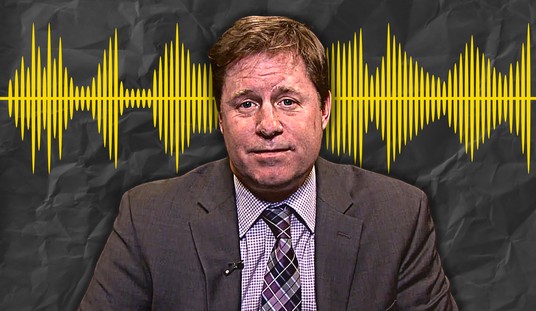Back in 2008, during the peak illusory powers of Barack Obama as the post-partisan hopester-and-changer, the media consistently failed to report that the statist beliefs of the Democratic presidential nominee came straight from the socialist playbook. In many cases, the media probably didn't realize it themselves.
At the same time, though, there was, and is, a feeling that such labeling is taboo. Even after an October surprise of a question from "Joe the Plumber" prompted Candidate Obama to reveal his inner redistributionist -- "I think when you spread the wealth around, it's good for everybody," Obama told "Joe" in 2008 -- the S-word was verboten.
I took issue with this taboo at the time, and even got called a "Red baiter" on national TV for asking whether Barack Obama would take the country "in a socialist direction."
The answer, of course, was yes: The state is more involved in our economy and lives than ever before, and not just because of Obamacare, which, of course, is a handy moniker for socialized medicine.
To be fair, the socialist direction is in no way a new direction for our country, which has, with only occasional pauses, been moving that way since the days of Franklin Roosevelt and his revolutionary socialist program, which we know, folksily, as the New Deal.
Even under Ronald Reagan, the federal government grew 3 percent. Obama's immediate predecessor, George W. Bush, is aptly described as a "corporate socialist Republican," as Michelle Malkin has long chronicled. Bush's saving grace for conservatives may be his signature tax cuts, but his political epitaph remains his socialistically twisted rationale for his "stimulus" plan known as TARP: "I abandoned free-market principles to save the free-market system."
Truth be told, for 80 years the debate in Washington between Democrats and Republicans has turned on how much government should run our lives, not whether government should run our lives in the first place.
Recommended
Lately, that seems to be changing. Probably despite their better focus-group-driven judgment, the presidential candidates and the political parties they lead have suddenly emerged from the fuzz of euphemism to inject a rare clarity into election rhetoric.
Democrats believe: "The government is the only thing we all belong to." That's the bottom line of a video presentation at the Democratic National Convention this week. Republicans believe: "We don't belong to the government, the government belongs to us." That's the tweeted response to the Democrats' message by Republican presidential nominee Mitt Romney.
For two campaigns that try to avoid the terminology of ideology and philosophy -- as is usual in modern politics -- it doesn't get any clearer, any more "polarizing," than this. And that's a good thing. It divides the two political camps according to their distinguishing ideals: the idealization of state power (Democrats) vs. the idealization of individual rights (Republicans). It's statism vs. liberty.
Democrat keynote speaker Julian Castro, mayor of San Antonio, helped highlight the chasm separating the two parties when he referred to the individual success stories that were showcased at the Republican convention last week. "We all celebrate individual success," Castro said. "But the question is, how do we multiply that success? The answer is President Barack Obama."
For Democrats in the 21st century, the answer to everything is the state. Take the life stories Democrat convention speakers tell, particularly the immigrant success stories, which so many Americans -- even Republicans! -- can invoke. In the Democratic version, modest beginnings are emphasized (the more squalid the details, the better), and the American tradition of upward mobility is catalyzed by a government program and ultimately defined by winning or securing government office. The Democrats' message seems to be: If you work hard and vote Democrat, you can end up in government office, too!
The contrast to the Republican message couldn't be starker. In his "empty chair" monologue, which brilliantly crystallized GOP principles in 10 short minutes, Clint Eastwood put it this way: "I would just like to say something, ladies and gentlemen. Something that is very important. It is that you, we -- we own this country. We -- we own it. Politicians are employees of ours."
Soon, Americans will choose the country's political fate, which, particularly this time around, is also our own role in the future: subjects or citizens? For once, the choice couldn't be clearer.

























Join the conversation as a VIP Member